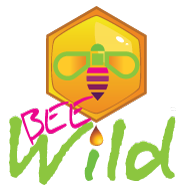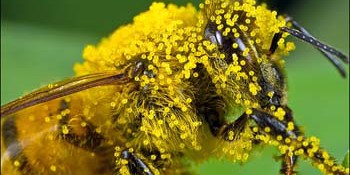Educate, Act, and Advocate – For Our Bees
So, What’s the Big Deal with Bees?
It seems that everywhere we go, we hear about the plight of bees and other pollinators. Every day environmental and real food advocates post on Facebook, Twitter, Pinterest, and Instagram. We even see information about bee die off and its effects on television. I know that one night I turned on one of my favorite programs, Inside Man with Morgan Spurlock, and he talked about bee die off.
So, why do we continue to talk about bees and bee die off? Our reason is simple – without pollinators, the choice for real food diminishes – and at Bee Wild we are dedicated to supporting our customers’ choices for excellent health, authenticity, and a vibrant, joyful life. We agree with many authorities that real food, filled with vitamins and minerals as they are found in nature, is one of the key components to realize a healthy, balanced lifestyle. See Dr. Mark Hyman’s guest blog on Dr. Deepak Chopra’s website, How Cooking Food Can Save Your Life.
We continue to share cutting edge information about bee colony collapse, real food, genetically modified organisms (GMOs), growing your own food, and general health on this blog as well as our Facebook Fan Page. So, please feel free to continue this conversation by leaving comments here or on Facebook. We believe that talking about real food is one of the pivotal conversations of our time.
So Much Information is Overwhelming.
Simply, What Can I Do?
Slow down and take your time wading through the information. The amount of conflicting stories about bees vs. pesticide companies/real vs. genetically modified foods is overwhelming. So, run everything through your “truth filter.” If you feel uneasy, if your body feels tight and a bit queasy, don’t ignore those signals. Too, if something sounds too good to be true, it generally is.
A Simple Strategy to Support Our Bees
This is the strategy I use when I look at any situation. I gather information, run it through my truth filter, retain what feels true to me, and take action. So let’s apply this to supporting bees as foundational to real food.
Educate
Take your time and learn everything you can about bees and other pollinators. What are their importance in the food chain? Have you observed any changes in their numbers in your own yard or garden? If you grow your own food or flowers, how is your food/flower production compared to 10 years ago? Then, as you can, read the posts and articles that come by. Find out what each side is saying about bees, real food, GMOs, and pesticides.
Act
Once you move through the information, develop a food strategy for yourself and your family. Ours includes:
- Buy organic, local, seasonal.
- Eliminate all processed and refined foods from our menus.
- Cook at home. I find that cooking and freezing food for nights when I’m busy works very well.
- Grow some of your of your own food organically. We have tubs on our deck where we grow greens, tomatoes, peppers, eggplant, and herbs.
- Use organic, heirloom seeds. See http://www.saveourpollinators.org/
- Compost vegetable waste and amend soil around your plants when the compost is ready.
- Create a bee garden on your property. See http://thehoneybeeconservancy.org/act-today-2/plant-a-bee-garden/
Advocate
I find the best way to advocate for bees, pollinators, and real food is to vote with my dollars. I read labels. I have apps on my phone that identify GMOs. I shop at local farmers markets. My dollars go to the producers of the real food I want to eat.
I also read and sign petitions that advocate for bees, pollinators, and real food, whenever I know the organization involved actually makes a difference. When these organizations have a good track record, I often make a small donation to their cause. Example: Earth Justice’s Bee Advocacy.
Conclusion
Yes, we all have busy lives, and we won’t take every step and some of the steps we take won’t be perfect. But, if each one of us does the best we can, we can turn the tide and real food will become the staple diet in America. The farming methods to produce real food will support our bees and pollinators, and all will thrive in this natural environment.








